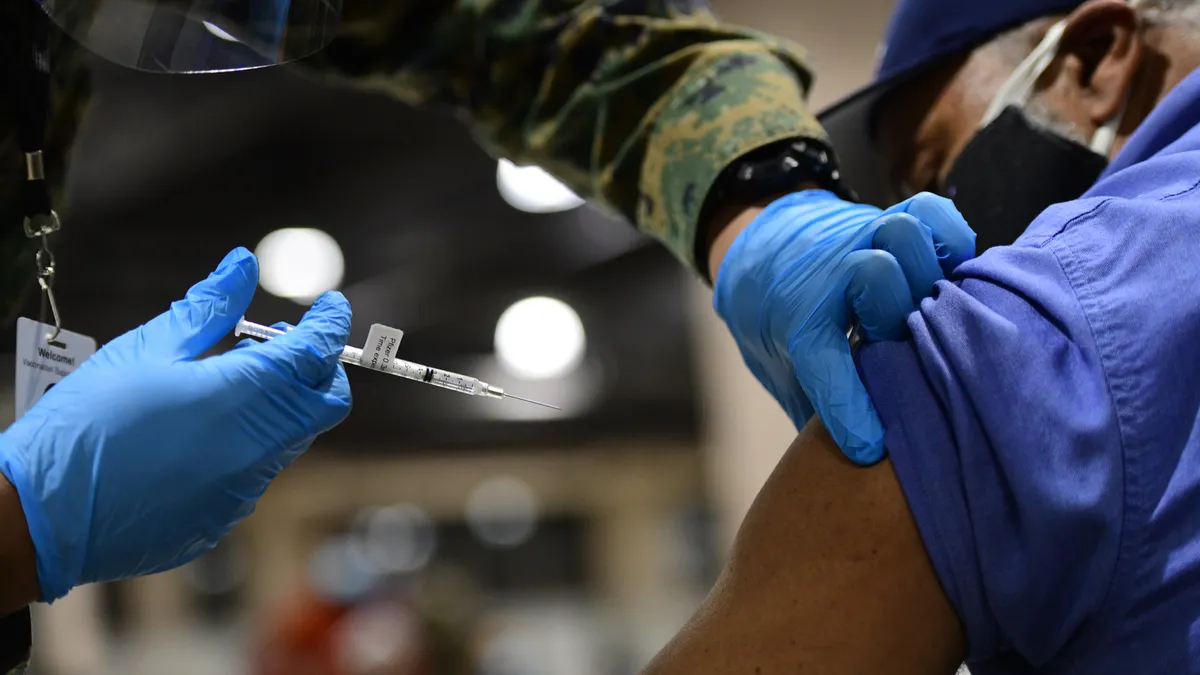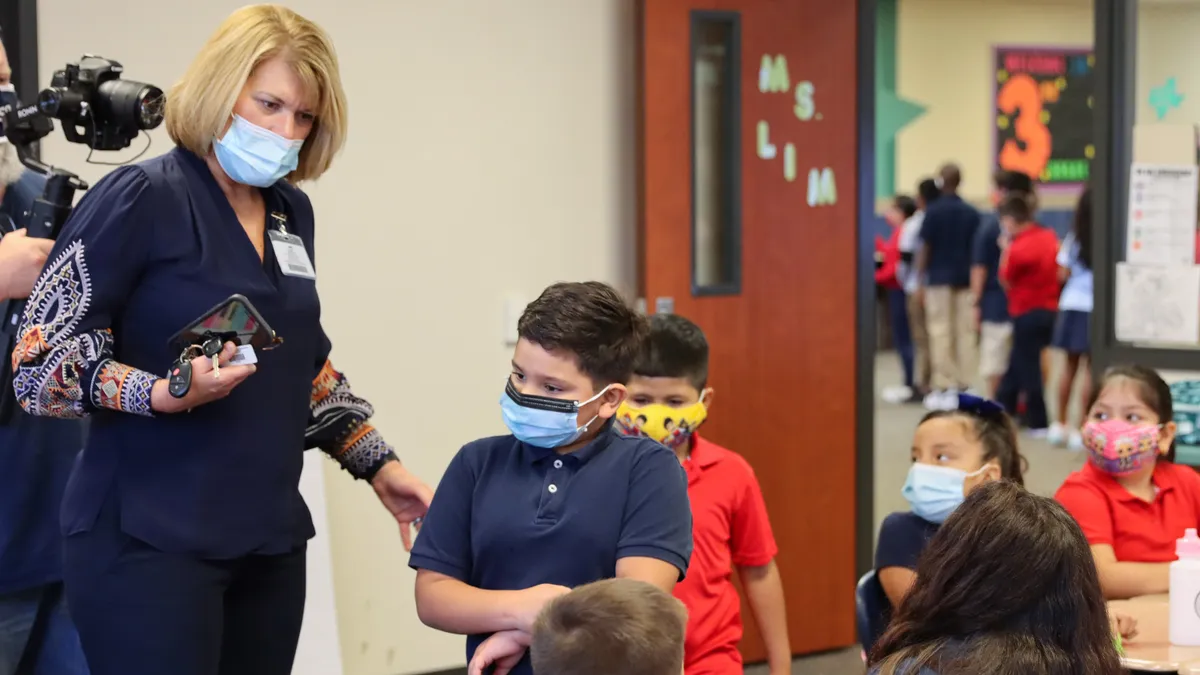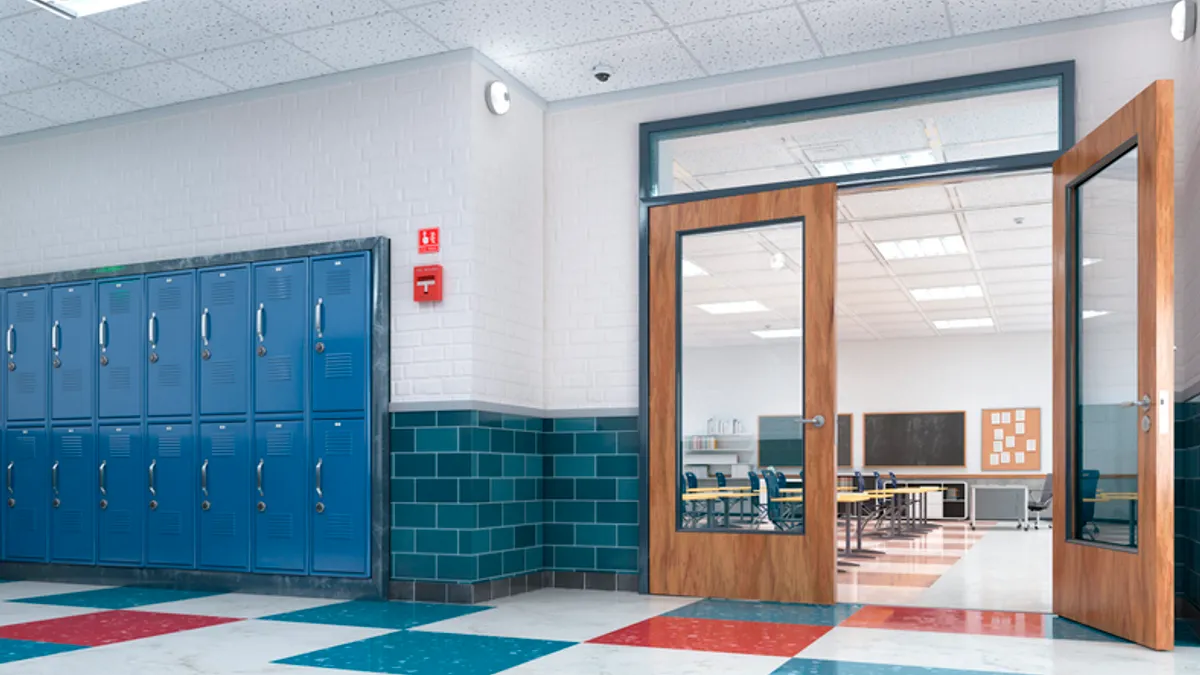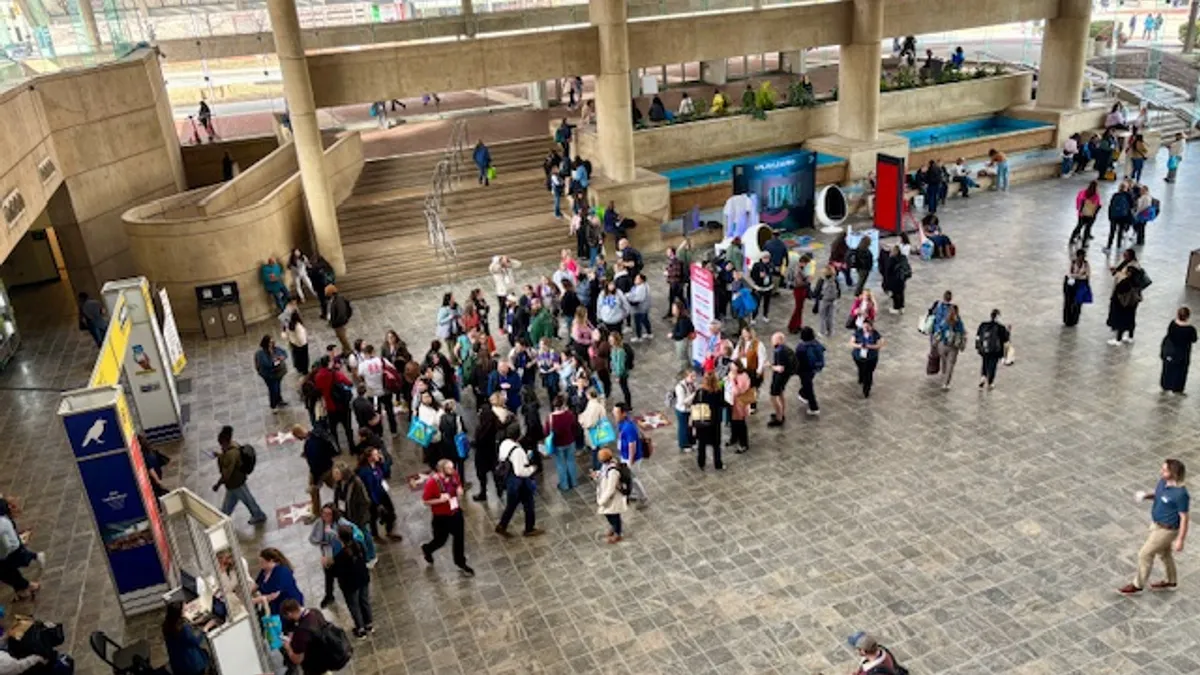School districts, especially in areas where vaccine and mask mandates have become contentious, may see higher turnover rates among staff after President Joe Biden called last week for vaccines to be mandated for employers with 100 or more workers in the near future. District leaders worry turnover may be especially damaging among school nutrition and transportation staff amid a pre-existing national shortage of both.
"Clearly, there is a certain level of vaccine hesitancy within the school bus driver pool, and we have seen anecdotal evidence that supports that theory, so any vaccine mandate will certainly have an effect on our driver population," said Curt Macysyn, executive director of the National School Transportation Association in an email. "When you are already working with a short staff, any downward adjustment in drivers is going to have an impact."
However, which districts will be impacted by the new rule will vary depending on a number of factors, including whether they are located in states overseen by or having an alternative plan with the Department of Labor’s Occupational Safety and Health Administration, the federal agency developing the mandate; whether the alternative plans are amended to reflect the change; and how districts employ their support staff.
The details of the new policy and how it will be implemented are still in the works. However, Julia Martin, legislative director for education law firm Brustein & Manasevit who monitors federal legislative and regulatory activities, said she expects its implementation to be "really patchwork."
According to the Centers for Disease Control and Prevention, 26 states currently have OSHA-approved state plans, meaning state and local government workers in those states, including those in schools, may be impacted by the new regulation if plans are updated to reflect Biden's order. Whether bus drivers specifically are impacted also depends on whether the district has a contract with an outside private company — which may have over 100 workers and be impacted by the regulation anyhow — or has in-house transportation staff, according to Martin and others.
"If the district doesn't comply, they can be investigated and fined like other employers, though OSHA doesn't have a lot of staff and enforcement capacity, so chances are this would rely on whistleblowers and publicity to draw fines," Martin said.
Many districts will begin to discuss potential changes in the coming days or weeks, or are waiting until there is more information from the federal level on details, such as logistical questions around who will fund the required paid time off to get a shot.
In the meantime, some school leaders already know they will have to prepare for blowback from their communities if a mandate impacts their districts.
Dave Jensen, superintendent of the rural Humboldt County School District in northern Nevada, said mask mandates have already impacted parent decisions around in-person learning, and he fears a vaccine mandate for COVID-19 could now impact retention of staff, around 65% of whom are vaccinated.
"Where we struggle is this comment of 'mandating' and the concern about at what point are we asking our teachers to build critical thinking skills in our students where they can evaluate and make individual decisions, but that same application doesn't apply to our staff members in terms of allowing them to make their own critical thinking pattern in addressing the COVID vaccine," Jensen said.
By mandating vaccines, Jensen believes "we are going to exacerbate the teacher shortage, and in the end, I'm convinced the only damage we're going to do is for our students, who are going to lack a fundamental right to an appropriate education."
Taking away family and educator choice, he added, could negatively impact education in the long-term as well.
In order to address the bus driver shortages, localities have adopted a host of solutions — including getting central office staff certified with the proper driving license to step in when needed, adopting "grow-your-own" programs to expand the driving force, and, in the case of Massachusetts, mobilizing and training up to 250 members of the National Guard to take the wheel.
"But these are short-term solutions," said Martin. "Whether they need long-term solutions depends on how staff respond to vaccine mandates. Do they quit? Do they eventually get it? Do they come back? Can job training programs help fill the gap? We don't know that part yet."
"We're in a position where beggars can't be choosers," said Sasha Pudelski, assistant director for policy and advocacy for AASA, The School Superintendents Association. "We really need people in those positions."







 Dive Awards
Dive Awards














